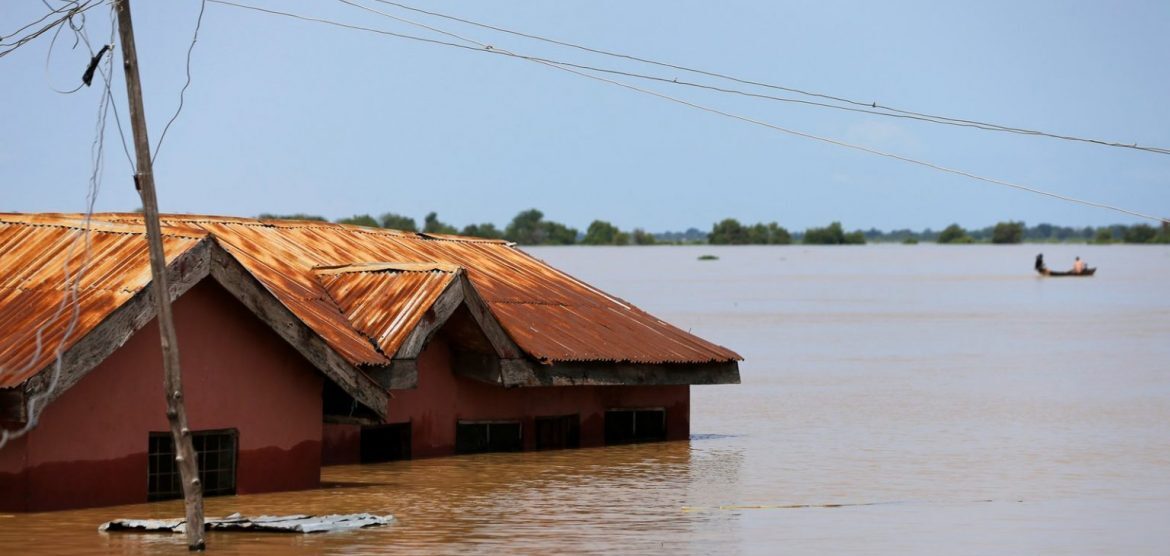Governments in Nigeria’s South South region, particularly Edo, Delta and Bayelsa states, are stepping up flood prevention measures following alerts from the Nigerian Meteorological Agency (NiMet) warning of possible severe flooding in 30 states due to heavy rainfall.
In Edo, the state’s Flood, Erosion and Watershed Management Agency (FEWMA) has launched targeted interventions in vulnerable areas such as Ekenwan Road, Uselu, Upper Mission Extension and Auchi.
According to FEWMA CEO Ahmed Momoh, major drainage systems are being desilted while public sensitisation campaigns are underway to ensure water can flow freely during peak rains.
The agency is collaborating with the Ministry of Environment, local authorities and community leaders to improve preparedness and educate residents on evacuation protocols.
The state has also unveiled a six month work plan under the €175 million EIB backed Nigeria Climate Adaptation Erosion and Watershed Project (NEWMAP EIB). Edo has committed ₦500 million in counterpart funding to accelerate implementation, with 10 percent of the fund expected to be accessed in the initial phase, pending administrative compliance.
In Delta, the state government has reactivated its flood disaster response structures and established Internally Displaced Persons (IDP) camps across high risk areas in Isoko North, Bomadi, Ughelli South and Asaba.
Environment Commissioner Jamani Ejiro attributed much of the urban flooding to poor waste disposal and illegal structures on drainage channels. He urged residents to take ownership of their surroundings by keeping drains clean and refraining from building on water paths.
A Flood Disaster Management Committee headed by the Secretary to the State Government is now operational, comprising commissioners and heads of relevant emergency response agencies. “Delta is a floodplain. We always begin preparations ahead of NiMet’s predictions,” Ejiro said.
In Bayelsa, anxiety is rising as water levels in the Epie Creek and River Nun continue to swell. Recalling the 2022 floods that displaced over 1.3 million people, residents of Yenagoa’s flood prone communities like Azikoro, Ekeki, Swali and Amarata are urging urgent government action. Environmental advocates including Jude Jack and Godwin Ekubo have called for stricter waste management enforcement and regular drainage clearance, warning that blocked gutters by plastic waste and construction debris are worsening flood risks.
Bayelsa’s Director General of Flood and Erosion Control, Mr Omuso Omuso, said the state has intensified drainage clearance as part of its flood mitigation strategy under the Prosperity Administration.
While acknowledging the geographical challenges, he noted that the state’s new flood control agency is working in coordination with the Ministries of Works and Environment to reduce the potential impact.
Across all three states, authorities are calling for public cooperation in flood prevention efforts, urging residents to maintain clean surroundings, obey building codes and promptly respond to evacuation notices where necessary.
With rains intensifying, the region’s proactive and coordinated approach will be crucial in minimising damage and protecting lives in the weeks ahead.



